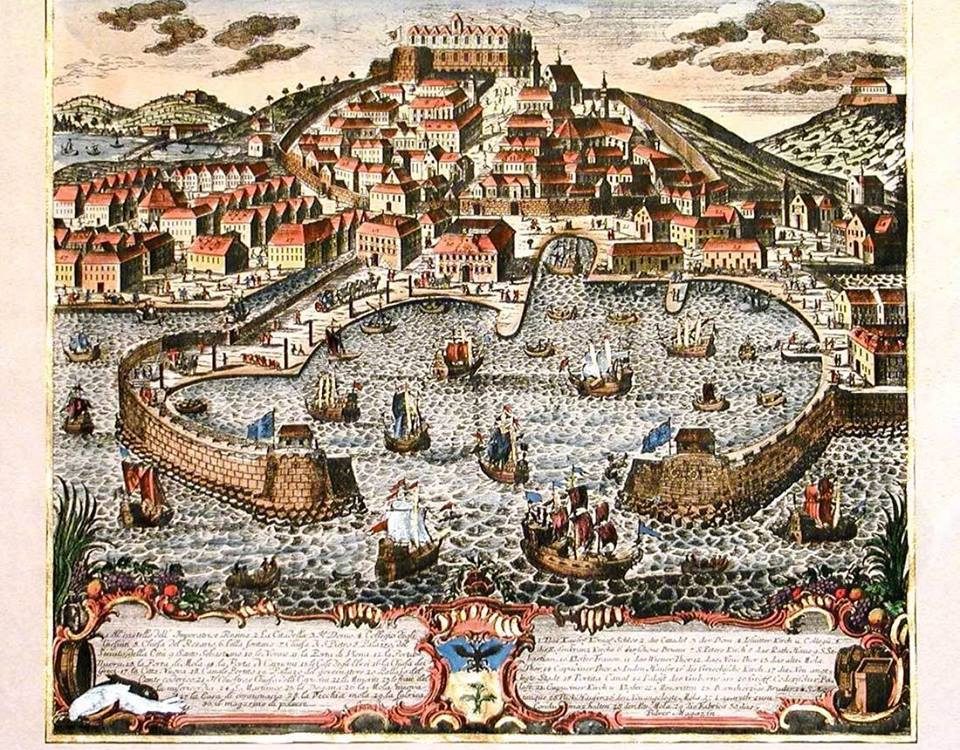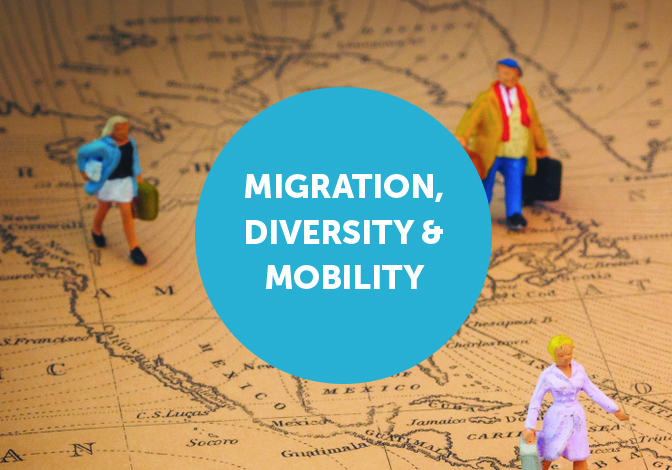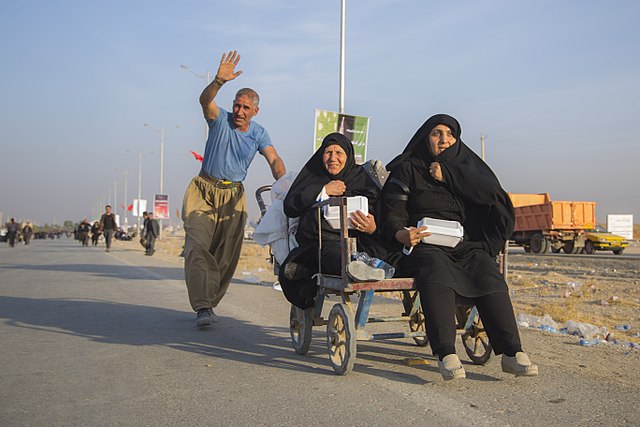


Cogito 11
3 July 2020
Unlocking Migration Politics: Gaps and Biases in Scientific Debates
16 November 2020Faced with a subject so vast and so decisive for the peaceful development of societies, the research projects carried out at Sciences Po have always been numerous. Here we present the directions and methods of a sample of recently initiated projects.
This research project* aims to analyze the distinctiveness of the political participation in France of Asians (Chinese, Cambodians, Vietnamese, and Laotians) and of French citizens of Asian descent, and the political socialization processes that occur before and after migration within diaspora groups.
The project explores the following working hypotheses:
- the generational transition from immigrants to descendants may reshape political participation;
- recent collective actions led by Asians in France against violence and discrimination may encourage more traditional forms of political participation at the local and national levels;
- the growing economic power of China (and more generally, of the Asian region) and its strategy of promoting an alternative model to liberal democracy may play a role in the political socialization process for immigrants and their descendants;
- these experiences would not, however, exclude adopting the citizenship practices of the countries of residence.
The project focuses on three research themes.
- To what extent are elected officials of Asian origin able and willing to represent a minority group?
- How is collective action expressed in the civil society of the populations involved? Also of interest are any diplomatic initiatives by the countries of origin and their endorsement by diaspora groups.
- What are the forms of embracing (or not) the political systems of the countries of origin (from liberal democracies to authoritarian regimes) given the political socialization processes.
*This project, supported by the Agence nationale de recherche, started in 2020 and has a 4-year term. It involves Ya-Han Chuang (INED), Hélène Le Bail (CERI/Sciences Po), Aurore Merle (CY Université de Cergy), Laura Morales (CEE/Sciences Po), Djamel Sellah (Centre Émile Durkheim), Patrick Simon (INED et CEE/Sciences Po), Vincent Tiberj (Centre Emile Durkheim), Lun Zhang (CY Université de Cergy).
The Migration Governance and Asylum Crises project (MAGYC)* deals with migration policies in a crisis situation. Its main objective is to understand the impact of migration policies on migration flows and migrants, and how the refugee crisis affects migration policy.
Two aspects of this project are directed by the Sciences Po Center for International Studies (CERI): “Constructing the crisis” and “External dimensions of the crisis”. The first aspect concerns the different interpretations of the crisis. The second deals with the externalisation of European migratory policies in the Middle East and the Horn of Africa, i.e. the process by which Europe delegates responsibility for controlling migration movements and refugee care to the countries in these regions. This externalisation raises a number of scientific, political and ethical debates, but few studies have been carried out to evaluate its effects.
For this aspect of the project, a team of economic and political experts is working to measure the impact of externalisation on the flows of irregular migrants and asylum seekers. The creation of a database and an econometric model involves a number of challenges. Externalisation is a multi-faceted and transversal phenomenon that concerns not only border control and control over irregular migrations, but also humanitarian aid and economic development in the countries of origin and transit; it aims to prevent clandestine immigration. This research notably proposes to determine the differentiated impact of the multiple political instruments, collectively referred to as externalisation measures, on asylum seekers and irregular migrants along the various “routes” they travel towards the borders of the European Union.
The MAGYC project is funded by the European Commission as part of the Horizon 2020 programme, in the Research and Innovation Action (RIA) project category. It was launched in November 2018 and will terminate in 2022. Participants: Thibaut Jaulin (CERI Sciences Po), Filip Savatic (Georgetown University), Céline Cantat (CERI Sciences Po), Hélène Thiollet (CERI Sciences Po/CNRS) Gerasimos Tsourapas (University of Birmingham), Stéphanie Latte Abdallah (CERI Sciences Po/CNRS), Virginie Guiraudon (CEE Sciences Po/CNRS), Camille Schmoll (Paris 7 – Université de Paris), Antoine Pécoud (Paris 13 – Université Paris Nord), Alice Mesnard (University of East London), Jean-Noël Senne (Université Paris-Saclay)
As migration and identity politics continue to play a major role in society and government across the world, accessible data on Ethnic and Migrant Minority is essential for researchers to analyse and understand these complex issues.This is what the project Making Ethnic and Migrant Minority Survey Data FAIR (FAIRETHMIGQUANT) aims to do by making French survey data on ethnic and migrant minority populations “FAIR” (findable, accessible, interoperable, and reusable).
In pursuing this objective, the project team works in partnership with two European projects: Ethmig Survey Data and the Social Sciences and Humanities Open Cloud. This partnership will make possible the inclusion of French surveys on an international database of surveys that is freely accessed online: the Ethnic and Migrant Minority Survey Registry.
As part of this effort, the project team has collected information on 175 surveys conducted in France that include a significant number of ethnic and migrant minority respondents. This represents one of the largest numbers of surveys collected for any of the 30 countries that will be represented on the Ethnic and Migrant Minority Survey Registry. The information obtained for 12 countries so far allows comparing the outlook of such surveys in France with other countries that are similarly survey-rich. For example, a higher proportion of the French surveys are conducted at the national level, 93% compared to 47% in Germany, 84% in Sweden, and 38% in the United Kingdom. Hence, surveys conducted at the sub-national (local or regional) level are much less common in France. Given that integration policies are considerably shaped by the local context, more information at the local level would be useful.
These surveys represent a wealth of information for researchers interested in understanding the social, economic, and political integration of ethnic and migrant minorities in France. They cover diverse topics, including health, labour market, political inclusion, and living conditions. Some surveys target particularly vulnerable or hard-to-reach populations, such as the “Survey of People Using Housing and Meal Distribution Services” conducted in 2012 among 10,627 individuals experiencing homelessness, of whom 4,524 were foreign-born. Other surveys focus specifically on the inclusion of migrant origin populations, such as the Longitudinal Survey on the Integration of Newcomers (ELIPA) series or the Trajectories and Origins surveys.
Some of the surveys collected are part of international survey programs that allow for cross-national comparisons. However, this is not the case for most surveys. Thus, there is a pressing need to make survey data more available, accessible, and comparable for researchers. This is why the next step is to include French surveys as part of a pilot to create a European online Ethnic and Migrant Minority Question Data Bank that will include questionnaires employed in surveys conducted in ten geographically and linguistically diverse European countries. This tool will allow researchers to easily identify surveys that ask questions pertinent to measuring the social and political integration of these populations while summarising relevant metadata.
The FAIRETHMIGQUANT project is funded by the Open Science call of the French National Research Agency (contract ANR-19-DATA-0004-01). It is led by researchers at CEE in Sciences Po (Laura Morales and Meredith Winn) in collaboration with researchers at Ined (Patrick Simon), CDSP in Sciences Po (Alina Danciu, Lucie Marie and Nicolas Sauger), PROGEDO (Sébastien Oliveau), IC Migrations (Perin Yavuz) and GESIS (Esra Akdeniz, Thomas Krämer and Wolfgang Zenk-Möltgen).
This project* aims to test and quantify the hypothesis according to which direct contact between individuals affects their opinions, actions, and the technologies they use. We use variations of historical migrations to identify variations in a person’s inclination to come into contact with others. Two specific aspects of this project are directly related to international migrations.
- “The Immigrant Next Door: Exposure, Prejudice, and Altruism” aspect, based on variations in the ethnic composition of American cities inherited from migrations to the USA from the 19th century onwards. This involves determining whether the proximity of populations of different origins causes changes in attitudes and behaviours with respect to foreign cultures. In particular, we aim to validate the hypothesis that the larger the Arab community in a city, due to almost-accidental historic reasons, the less the non-Arab residents of this city have negative perceptions of Arabs in general, and the more charity donations they make to Arab countries affected by natural disasters.
- The second aspect, “Very Long Run Growth”, aims to build a database of the objects held in many of the world’s art and history museums. This database will then enable measurement of the appearance and diffusion of new technologies over a timescale covering several thousands of years. By combining this information with historical and archaeological data on migrations, we will be able to quantify the contribution of human migrations to technological progress in the very long term.
* The “Historical Migrations, Trade, and Growth” project is funded by the European Research Council within the framework of the “ERC Advanced Grants”. Headed by Thomas Chaney, Professor at the Department of Economics, the project was started in June 2020 and will continue until June 2025.
This project investigates how non-governmental organizations contribute to the development of political crises, based on what has become known as the migrant or refugee crisis that evolved in and beyond the borders of Europe during the 2010s. It uses this example to explain how crises affect the perceptions, strategies and tactics of these non-governmental organizations. The project examines how these “moments” generate organizational transformations among these NGOs in response to the “crisis” management policies deployed by governments. One project team focussed, in particular, on how the crisis was portrayed by the media and non-governmental organizations in different national contexts, including France.
Even though no major influx of asylum requests or migratory flows concerning France were observed between 2011 and 2017, the “migratory crisis” received intense media interest. To understand this paradox, we consider two questions:
- How did the crisis develop into an “event” and become sensationalised in the leading French newspapers?
- How did the “crisis” become polarised based on the nationalities of the immigrants and asylum-seekers concerned, leading to what we assume to be a racialisation of the portrayal of migration and asylum issues?
Based on a corpus of articles from six leading national French newspapers, we describe the emergence and portrayal of migration and asylum as a “crisis”. We test the hypothesis that a key characteristic of the “crisis” in France is its separation from the actual flows of foreign migrants and its politicisation.
Following a chronological sequence, we examine the construction of the sub-events that have polarised the media standpoints, such as the various migrant ships that have sunk in the Mediterranean since 2012, the publication of the photograph of Aylan Kurdi in August 2015, the joint declaration by the European Union and Turkey in October 2016 and the agreement between Italy and Libya signed in July 2017.
We also analyse the differential treatment of the immigration crisis according to the origins of the migrants and asylum seekers to explore polarisation as a form of racialisation of crisis discourses.
This project – (The politics of the migrant and refugee crises in Europe (PACE)) – funded by the French national research agency ANR, was launched in 2019 and will continue through to 2023..
It involves four institutions: Sciences Po Center for International Studies (CERI), the International migration, migratory spaces and societies centre (MIGRINTER) of Poitiers university, the Triangle laboratory – Action, discourses, political and economic thought (CNRS, Lyon ENS and partners) and Paris 13 university.
Sciences Po participants: Hélène Thiollet (CNRS/CERI Sciences Po), Catherine Perron (CERI Sciences Po); Michelle Reddy (CERI Sciences Po), Virginie Guiraudon (CNRS/CEE Sciences Po), Elisa Benker (Sciences Po/Frei Universität); Camille Schmoll (Université de Paris), Mélodie Beaujeu (AFD), Marie Bassi (URMIS, Université de Nice), Giulia Scaletaris (Université de Lille), François Gemenne (Université de Liège).




